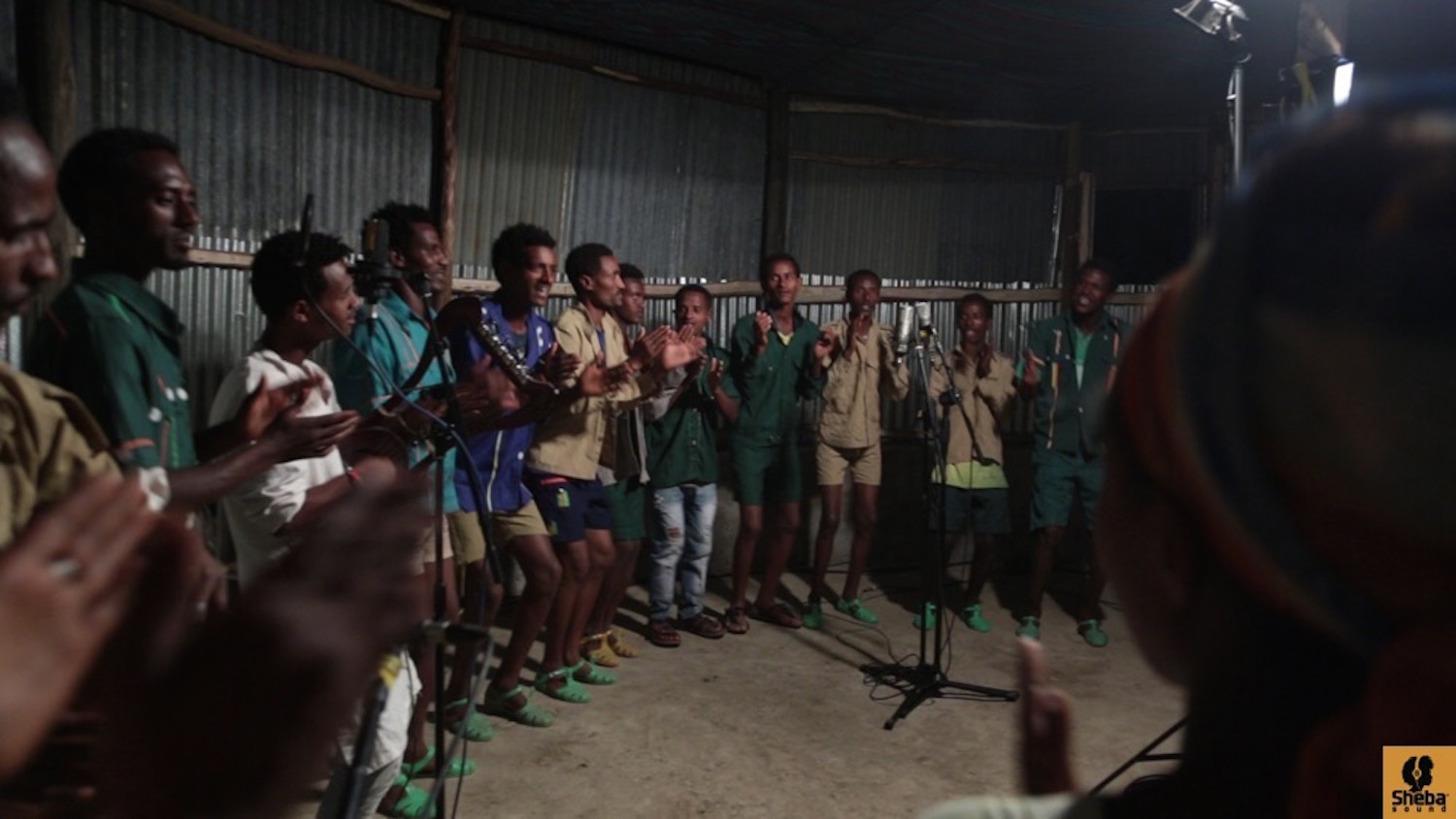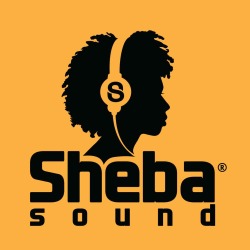The Awrus tribe’s administrative centre is in Hagere Selam, in the south of Tigray, on the border of the Amhara region. The music appears to have influences from both regions, which makes it quite distinctive. We recorded five tracks here in May 2014 in a large barn in a community centre compound. We also recorded a short interview with two of the musicians, Termesgen Gugsa and Samrawit Negash.
In this song, Aha Leley, a woman is talking about her man and saying that if he is not a hard worker, and if he does not plough and dig, he can go his own way: she doesn’t want anyone who does not work.
Lead vocals: Trhas
Kebero: Hiwot Kalayu
Krar: Berhanu Haileselassie
Female backing vocals: Samrawit Negash, Tirhas Gebre, Tirhas Gebre Medhin, Tigist Gebre Hiwot, Letekiros Gebre Medhin, Teamir Tesfaye
Male backing vocals: Geray Hagos, Welday Abreha, Mehari Tesfay, Mehari Gebre Tensae, Temesgen Gugsa, Kalayu Abadi, Abreha Addis, Bereket Gebre Selassie, Kifle Mebrahtu
Two of the musicians, Termesgen Gugsa and Samrawit Negash, discussed their musical traditions with us.
Hello, if you could both tell me your names, your occupation, and when you began this line of work.
My name is Temesgen Gugsa, I work in the arts club, and I started in 2000 E.C. (2008 A.D.)
My name is Samrawit Negash. I work in art.
When did you begin?
I began around a year ago.
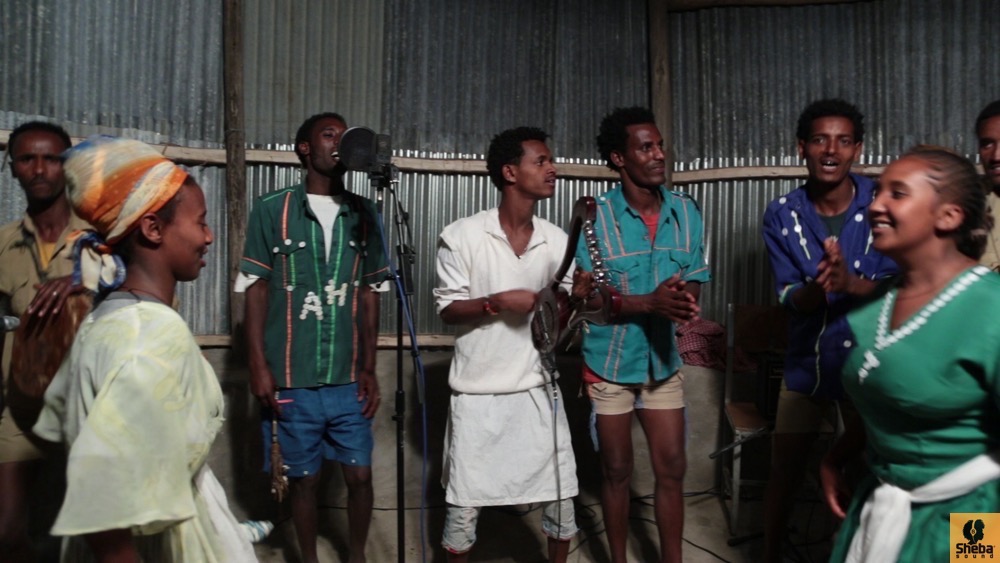 How long has it been since this group was formed?
How long has it been since this group was formed?
It was first formed in 1991 EC (1999 AD) as a school club and named “Tesfa Meskot” or “Window of Hope” after the school. But then came the idea that the traditions of the Woreda (local area) should get exposure, so all the people here were gathered to promote Awrus Bahal (Awrus culture).
So what is the name of the band now?
Awrus.
So the band is called Awrus as well?
Yes.
What kind of music do you usually play?
Awrus.
So the music is called Awrus as well?
Yes.
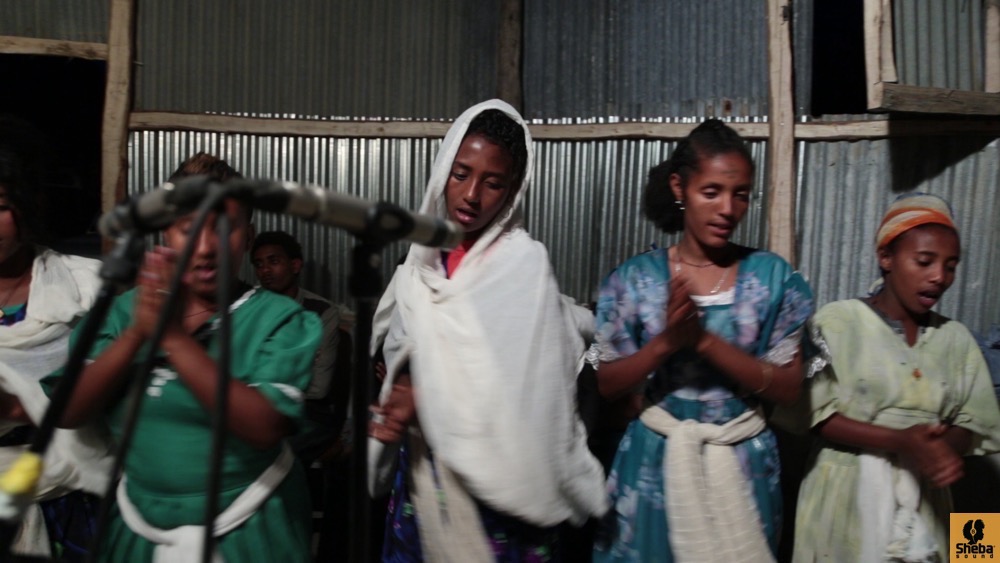 What is the musical tradition around here? What are the names of the types of music you have?
What is the musical tradition around here? What are the names of the types of music you have?
We have Awrus and Tilit. Awrus is the one that is played more frequently. There are three sorts of Awrus in the Tenbien area. One is called Eguada Guada, the next is called Yemahres, and the third is played during times of harvest.
You said the first is called Eguada Guada?
Yes.
On what occasions is that one played?
That one is mostly played by women.
At which times is it played?
They play this song dancing in threes. Then these are played for Ashenda, for Easter, on Meskel, and on holidays in general.
How about the other two? When are they played? Who plays them?
All are played basically for the holidays, whether for Easter or for the other holidays.
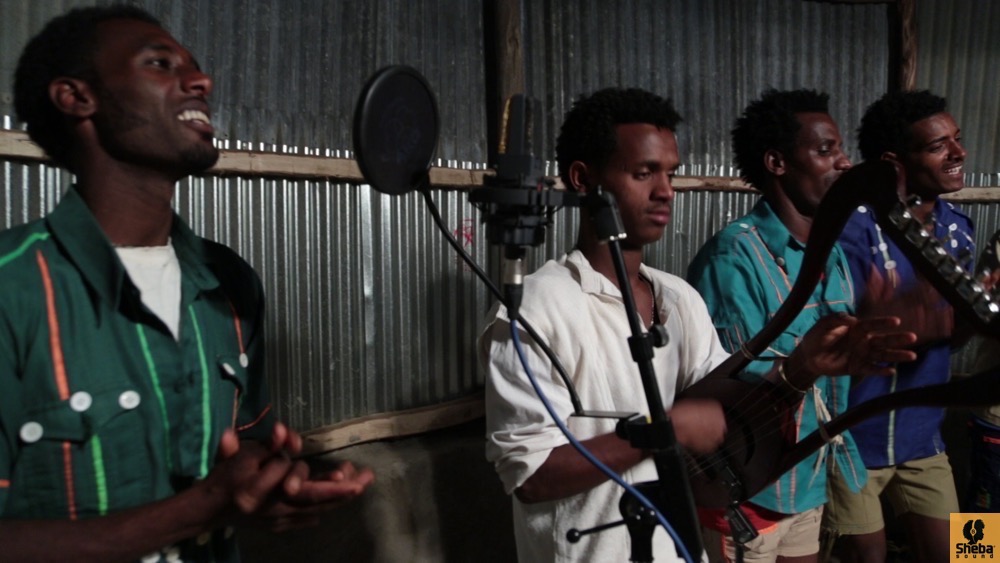 If you could tell me a bit, for example, of the songs played in the fields. And in general when do the people around here frequent music?
If you could tell me a bit, for example, of the songs played in the fields. And in general when do the people around here frequent music?
The main reason for the songs that are played in the fields during ploughing and harvesting help ease the work and speeds it up a lot. In addition, you work hard and finish quickly, and since the music is arousing to the spirit, you work hard when you are singing it. This is why we use it.
What about the women, what music do they play when they are working?
Awrus.
If you could explain a bit to me, even if it’s in Tigrigna (language from Tigray province).
We sing when the holidays come around, if it is Ashenda, we play the songs for Ashenda. We mostly play Awrus, otherwise we play Tilit.
When we are harvesting we usually play Awrus, Awrus or Tilit …
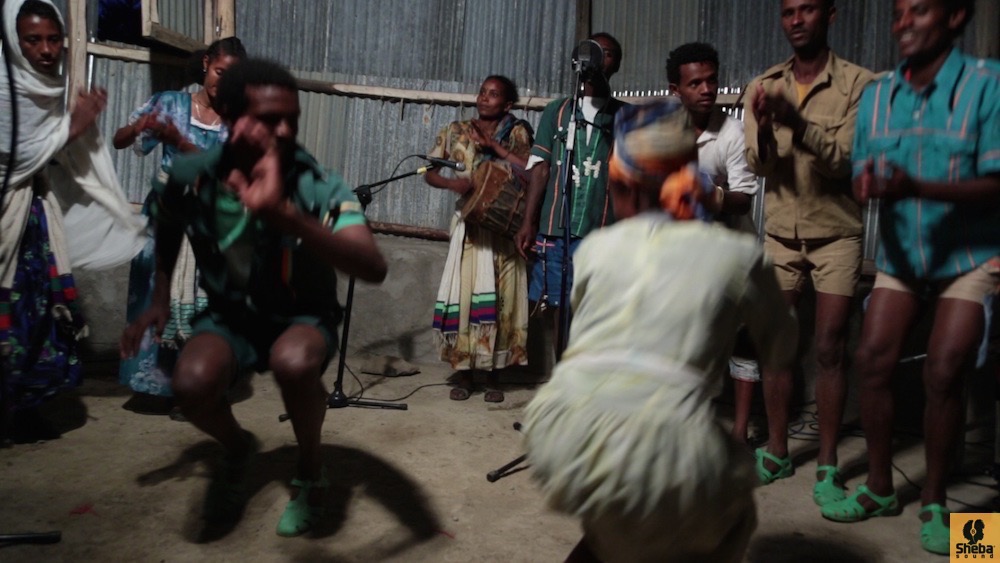 What other traditions exist in this area? What is the main livelihood of the people in Hagere Selam and the surrounding kebeles (areas)?
What other traditions exist in this area? What is the main livelihood of the people in Hagere Selam and the surrounding kebeles (areas)?
Most people are farmers. We do not have manufacturing here. They work in development. Since the town is small we don’t have manufacturing or factories here. The main work is farming. There is also milk production at this time, but other than that there is nothing.
So if we can go back to the roots of the culture, where, or from what influences, do you think the Awrus and Tilit music styles arose out of? If there are any stories you heard from your fathers, from what kinds of situations or nature do you believe these styles came out of?
In short, Awrus itself means to inherit, so it is about passing it on so the culture won’t get extinct. We were also passing and taking from each other as we play. So all in all it is about inheriting and passing it on. Around five times a year we play everything and pass it on so that it will not disappear.
What about Tilhit, what does the word mean?
Tilhit is also something that has “come down”.
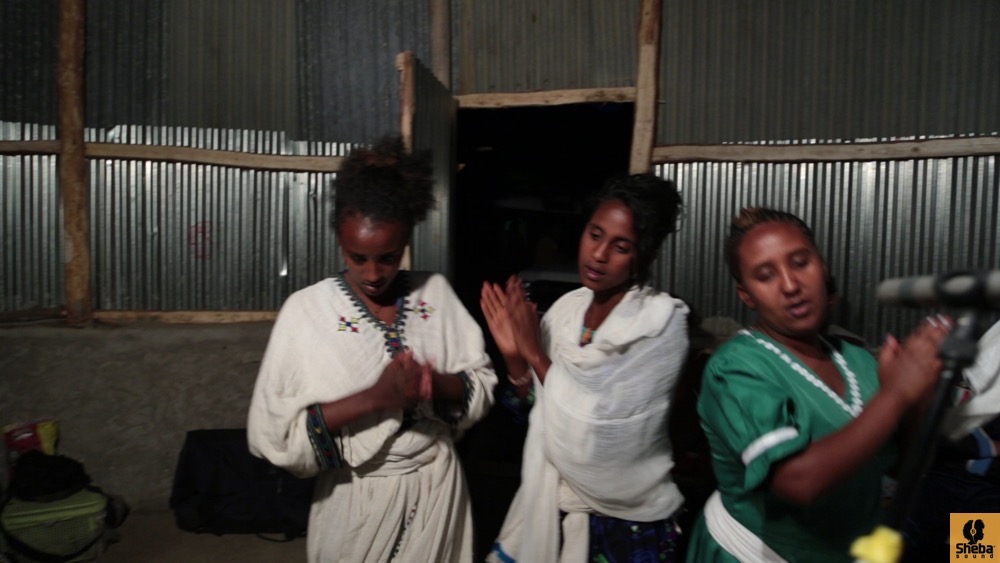 I have been told that the “Aha Laley” is the phrase you use as the introduction to the rhymes. Can you explain a bit to me about how it works? Do you make up the rhymes on the spot or are there common rhymes that are used?
I have been told that the “Aha Laley” is the phrase you use as the introduction to the rhymes. Can you explain a bit to me about how it works? Do you make up the rhymes on the spot or are there common rhymes that are used?
We have common ones, and also ones made on the spot for the occasion. If it is for agriculture you make the poems (rhymes) about agriculture and sing that. If it is for other occasions then you mix in the traditional rhymes for the occasion.
What is the opinion of the youth at this time as regards the preservation of the traditional music? What is the situation in this area regarding the interest of the youth to keep on playing the music with traditional instruments and preserving the culture?
Everyone around here is happy to know about the culture. So everyone wants to know the music, but since this is a small town, there is a shortage of instruments. But if there are instruments like the piano and such, everyone wants to learn. However, the (deciding factor) is capacity.
There is something that we hear in different places; especially since the keyboard appeared. Traditional music is losing its taste (particularity?), and also the youth have lost interest in practicing the traditional instruments and gone to the modern, and even many people making the instruments like the kebero (drum) have now stopped.
How do you see this from your area?
This is a lie. We make every instruments in this country, kebero, all of them.
What you said is right. Even though we may not use them, (modern instruments), if you go to Mekele or other more developed cities, you see this happening. It is true that this is destroying the culture. If it is culture, then you must be able to see the representation of the culture.
So the modern songs may be enjoyable (entertaining, satisfying) for the time being, but it is not able to rouse the deep passions. So this is right.
Does this mean that most the musicians playing here use traditional instruments?
Yes.
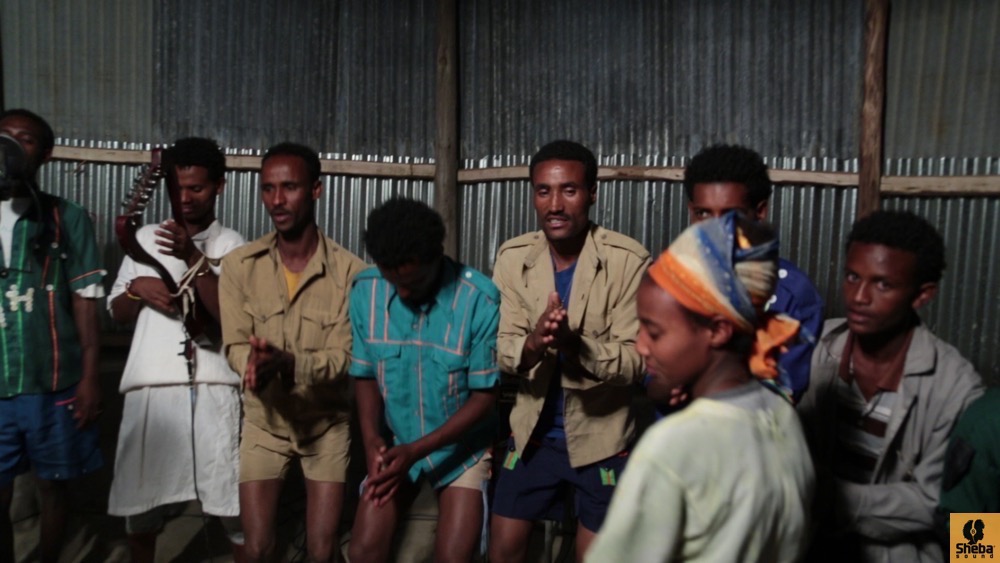 So how do you see the future of Awrus and Tilhit music from the situation at the time? Do you think it will grow or disappear?
So how do you see the future of Awrus and Tilhit music from the situation at the time? Do you think it will grow or disappear?
It will grow. We believe that the culture will keep on growing. And since we want to be known for and through our culture, we do not have much interest in playing other cultures. So I expect that our culture will grow and it will develop in a good way. It is (already) progressing from year to year.
It will grow progressively, from year to year.
How do you see the future of your band?
Since all the musicians in the band have a desire for this work, it is the hope and wish of all of us that they grow in this profession and reach a higher position.
If there is anything you want to add or anything you think I failed to mention, take turns to say a last thing.
We have a holiday once a year called Ashenda, that is also good. We always play then.
If you could tell me a little about the Ashenda holiday. Why and how is it celebrated?
Ashenda is something that has come from our mothers, and we play it from year to year.
The women?
Yes, we play it from year to year.
So how is it celebrated? If you can explain to me some of the history?
Well, we celebrate it every year (called habtega for exact meaning). Since it is only once a year, the whole of Tigray celebrates it. We practice every year.
What is the reason behind this holiday/celebration?
It has come from our mothers from earlier generations. As you said now, the Ashenda holiday is related to religion. I mean it is related to the Virgin Mary in religion. Only women sing and dance then. And another holiday that is celebrated on Hamle 5, which is called Hawarya (Apostles), and also related to religion.
At that time there is something called Habtega … you hold these and go to the desert to commemorate.
Another celebration is Hoya Hoye. For Hoya Hoye you take some hay and burn it then go to the Church and all the town centres singing and dancing. This is a holiday for men (males). Both this and Hawke, which is played for Easter, and Hoya Hoye is played for Meskel, on the Hawarya 5th day (Meskerem). Starting from Pagume.
So there are many traditions in this country, in this area.
Finally, here’s a clip of Nick Manasseh at the controls, mixing a dub of another recording from this session: Weyniye Weynu, sung by Kifle Mebrahtu.





